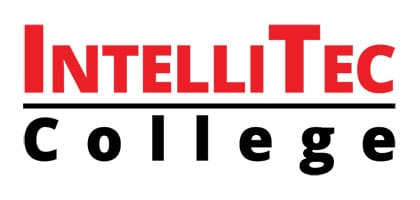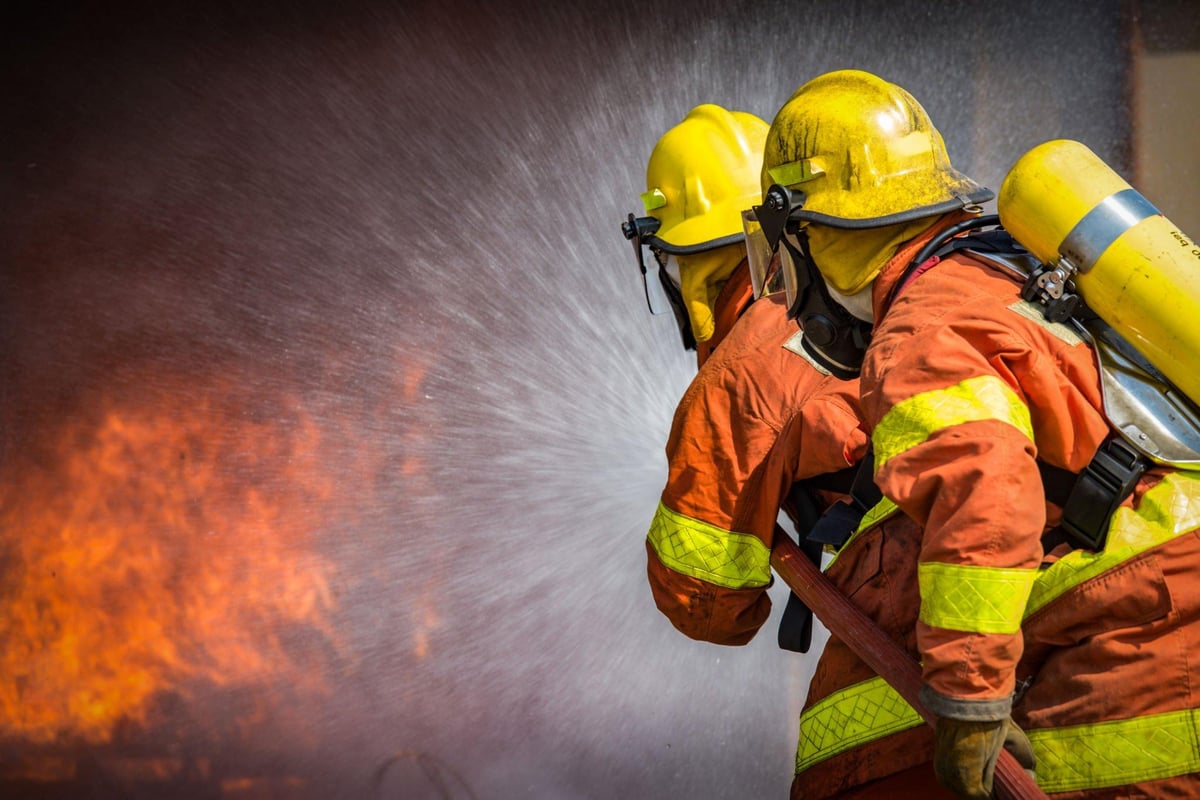Fire Science classes near me in Colorado Springs
In the Colorado Springs metro area, the average cost of a class is $11000 and the average class length is approximately 39 weeks long
Trade and industry classes near
Colorado Springs, CO 80903Online classes
Financial aid
Certificate
Short classes

IntelliTec College - Colorado Springs Campus
Refrigeration & HVAC Technician
- Earn HVAC & Refrigeration degree in < 2 years, incl. career placement
- Prep for multiple certifications: EPA Green, ESCO, Mechanic IV & more

IntelliTec College - Colorado Springs Campus
Electrical Technician
- Earn an Electrical Technician Certificate in a hands-on program
- Eligible for Residential Wireman exam after 1 year of experience

IntelliTec College - Colorado Springs Campus
Automotive Technician
- Hands-on training in simulated auto repair facility
- Support with career placement post-graduation
Fire Science classes near me in Colorado Springs
Are you interested in pursuing a career in fire science? If you're located in Colorado Springs, you're in luck! There are several fire science classes available right in your area. In this blog post, we will explore what fire science is, the training requirements to become a firefighter, what to look for in a fire science class, what to expect from the day-to-day class experience, the certification process, how to find a related job, and other classes you can take after becoming a fire science professional.

Introduction
Fire science is the study of fire behavior, prevention, suppression, and investigation. It encompasses various aspects of fire safety and emergency response. Firefighters play a crucial role in protecting lives and property by responding to fires, accidents, and other emergencies. If you have a passion for helping others and a desire to make a difference in your community, a career in fire science may be the perfect fit for you.
Training Requirements
Becoming a firefighter requires specific training and education. While the requirements may vary slightly depending on the state and department, here are the general steps to becoming a firefighter:
-
Obtain a high school diploma or GED: Most fire departments require candidates to have a high school diploma or GED equivalent.
-
Complete a fire academy program: Fire academies provide the necessary training to become a firefighter. These programs typically cover fire behavior, building construction, hazardous materials, emergency medical services, and more.
-
Obtain EMT certification: Many fire departments require firefighters to be certified as Emergency Medical Technicians (EMTs). EMT certification involves completing a training program and passing a certification exam.
-
Pass physical fitness tests: Firefighting is a physically demanding job, and candidates must demonstrate the physical fitness necessary to perform the duties of a firefighter. Physical fitness tests often include tasks such as ladder climbs, hose carries, and simulated rescues.
-
Pass written exams and interviews: Fire departments may require candidates to pass written exams and participate in interviews to assess their knowledge, skills, and suitability for the position.
What to Look for in a Fire Science Class
When searching for fire science classes near you, it's essential to consider certain factors to ensure you receive quality education and training. Here are a few things to look for when choosing a fire science class:
-
Accreditation: Make sure the fire science program you choose is accredited by a recognized accrediting body. Accreditation ensures that the program meets specific standards of quality and provides a reputable education.
-
Experienced instructors: Look for classes taught by instructors with real-world experience in the fire science field. Instructors who have worked as firefighters or have extensive experience in the industry can provide valuable insights and practical knowledge.
-
Hands-on training: Fire science is a hands-on field, so it's crucial to choose a class that offers practical, hands-on training. Look for programs that provide opportunities to practice firefighting techniques, use firefighting equipment, and simulate real-life emergency scenarios.
-
Networking opportunities: Classes that offer networking opportunities can be beneficial for future job prospects. Look for programs that connect students with professionals in the fire science field, such as guest speakers, field trips, or internships.
What to Expect from the Day-to-Day Class Experience
Fire science classes typically combine classroom instruction with hands-on training. Here's what you can expect from the day-to-day class experience:
-
Classroom instruction: You will learn about fire behavior, fire prevention, emergency response protocols, hazardous materials, building construction, and other relevant topics through lectures, discussions, and presentations.
-
Hands-on training: You will have the opportunity to practice firefighting techniques, use firefighting equipment, and participate in simulated emergency scenarios. This hands-on training is essential for developing practical skills and gaining confidence in real-life situations.
-
Physical fitness training: Firefighters need to maintain a high level of physical fitness. Your fire science class may include physical fitness training to help you build strength, endurance, and agility.
-
Teamwork and collaboration: Firefighting is a team effort, and your class will emphasize teamwork and collaboration. You will work closely with your classmates to solve problems, practice firefighting techniques, and simulate emergency responses.
Certification Process
After completing your fire science class, you will need to go through the certification process to become a firefighter. The certification process may vary depending on the state and department, but it generally involves the following steps:
-
Written exam: You will need to pass a written exam that tests your knowledge of firefighting principles, procedures, and safety protocols.
-
Physical abilities test: Fire departments often require candidates to pass a physical abilities test to demonstrate their physical fitness and ability to perform essential firefighting tasks.
-
Background check: A thorough background check, including criminal history and driving record, is typically conducted to ensure candidates meet the department's standards.
-
Medical examination: Candidates must undergo a medical examination to ensure they are physically and mentally fit to perform the duties of a firefighter.
-
Interviews: Candidates may be required to participate in one or more interviews to assess their suitability for the position.
Once you have successfully completed the certification process, you will be eligible for employment as a firefighter.
How to Find a Related Job
Once you have completed your fire science training and obtained the necessary certifications, you may be wondering how to find a job in the field. Here are a few tips to help you in your job search:
-
Network with professionals: Attend industry events, join professional organizations, and connect with firefighters and fire science professionals in your area. Networking can help you learn about job openings and make valuable connections in the field.
-
Volunteer or intern: Consider volunteering or interning with a local fire department or emergency services organization. Volunteering can provide valuable experience, help you build connections, and increase your chances of finding employment.
-
Check department websites: Many fire departments post job openings on their websites. Check the websites of fire departments in your area regularly for job postings and application instructions.
Other Classes After Becoming a Fire Science Professional
Once you have established a career in fire science, there are several other classes you can take to further enhance your skills and knowledge. Here are a few examples:
-
Advanced firefighting techniques: Advanced firefighting classes can provide additional training in specialized areas such as high-rise firefighting, wildland firefighting, or hazardous materials response.
-
Leadership and management courses: If you aspire to advance into leadership roles within the fire service, leadership and management courses can help you develop the necessary skills and knowledge.
-
Emergency medical services (EMS) training: Many firefighters also obtain additional training in emergency medical services. EMS training can enhance your ability to provide medical assistance in emergency situations.
-
Incident command system (ICS): The ICS is a standardized management system used in emergency response situations. Taking an ICS course can improve your understanding of incident management and your ability to work effectively within a command structure.
Final Thoughts
Fire science classes are a crucial step towards a rewarding career as a firefighter. By completing a fire science class, you will gain the knowledge, skills, and certifications necessary to protect lives and property in emergency situations. Remember to consider factors such as accreditation, experienced instructors, hands-on training, and networking opportunities when choosing a fire science class. Once you have completed your training, utilize resources like Dreambound to find job opportunities in the fire science field. Good luck on your journey to becoming a firefighter!
If you're considering pursuing this certification in a different location, we have other in-depth guides to help. Check out our guides for different cities below:
- How to Become a Firefighter in Arkansas
- How to Become a Firefighter in Georgia
- How to Become a Firefighter in Maryland
- How to Become a Firefighter in Pennsylvania
- How to Become a Firefighter in Wyoming
Are you exploring diverse professional opportunities? Take a closer look at these resources that Dreambound has written to help in your search.
FAQ
What is Dreambound?
Dreambound is the largest platform for students to find career & technical training programs. While we can't guarantee a career outcome, our mission is to provide all the information you need to find the perfect program for you.
What programs do you offer?
Dreambound has over 70 programs across healthcare, technology, business, and industrial trades. This includes programs such as Medical Billing, Cybersecurity, and welding.
Do you offer financial aid?
Some of our schools offer financial aid for those who qualify. Many others offer payment plans, where you can pay the cost of class over time.
Is it possible to do online classes?
Yes, Dreambound offers many online programs. On Dreambound's search, you can filter by online, in-person, and hybrid (part online, part in-person).
